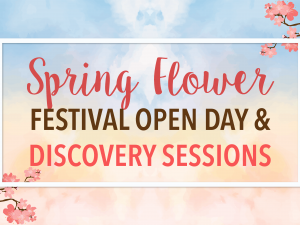
Is your child getting enough play?
Or, to put it more precisely, are they getting enough “free play”?
Free play is unstructured time during which children get to choose how they play and they take the lead in their own fun. During self-directed play, they act out role plays, create their own rules, and explore the world around them at their own pace.
Child-development experts agree that free play is vital and provides profound benefits for your child’s healthy physical, social, and cognitive growth.
Let’s dive in and take a closer look:
Character & Personality
Free play boosts confidence and self-esteem. Through this play your child explores their physicality and the cause and effect involved in social dynamics. As with anything, practice leads to self-assurance and an awareness of capabilities.
Children who engage in undirected play also develop empathy, an openness to others’ views, and the ability to recover quickly from setbacks. All in all, it encourages growth into more confident, self-aware, and resilient adults.
Brain & Mind
Modern science suggests that play increases neural structures, boosting cognitive development. It bolsters decision-making skills, gives rise to concepts of shape, size and texture, and even helps language development
All of this combines to support learning readiness; and so, contrary to intuition, free play is actually helping your child to prepare for school.
Physical body
It’s no surprise that play, especially outdoors, is great for keeping kids moving and healthy. As they run, chase, tumble and turn they are developing muscle strength, strong bones, and a healthy lung capacity.
Play involves concentration and fine motor-skills as your child stacks blocks or completes a jigsaw. This prepares them not only for handwriting but for careers in sport, engineering, carpentry, surgery, or any number of vocations that depend on precise movements of eye, hand, and muscles.
Emotional & Social skills
Free play with friends promotes a myriad of positive social and emotional benefits to your kid. They learn to cooperate and work within groups, they develop the capacity to receive and respond to feedback, and they get vital practise at negotiation and conflict resolution.
These are essential life skills that will translate into benefits at school, work, and within their future relationships.
On an emotional level, children who engage in make believe role play are able to act out difficult feelings and work through traumatic events in a safe and cathartic way. This leads to less anxiety and children who are emotionally balanced.
Prioritize Play
Put simply, the benefits of play are profound. For this reason it is essential that it is prioritized and safeguarded. Many children are losing their playtime in favor of additional academic, arts, or athletic classes. While these organized activities can bring value to children, it is vital that they do not usurp all of a child’s play time.
Finding a balance between organized activity and free play will lead to healthy, well-rounded, whole-child development.
Need more convincing?
Here is a comprehensive list of 43 evidence-based benefits of play:

References:
http://www.playengland.org.uk/media/371031/a-world-without-play-literature-review-2012.pdf#page=10
https://wetheparents.org/importance-of-free-play http://www.tulsaeducare.org/wp-content/uploads/2012/01/Educare-Content-G-Articles-Importance-of-Play-Article.pdf#page=3





